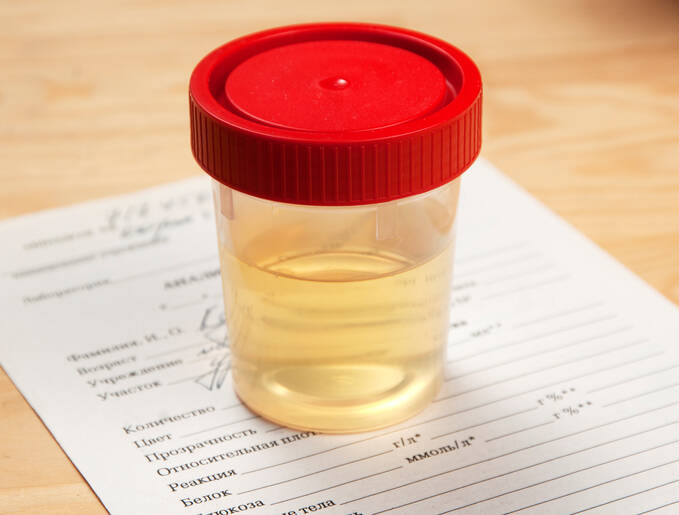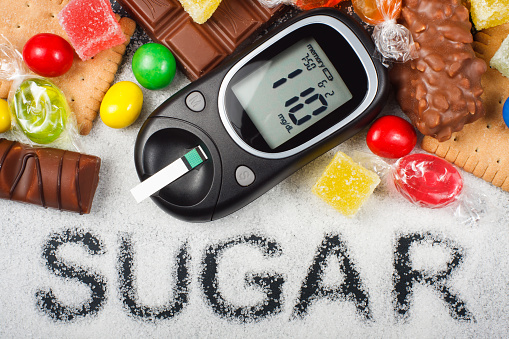- wikiskripta.eu - Urinary sugar levels
- hpl.sk
Urinary sugar: what signals elevated sugar and what values are normal?

Sugar is the most important substance for the body. The body is careful in managing its levels. It does not excrete it. Sugar is not normally found in the urine. However, there are cases where it is present.
Sugar in the urine in practice means that there is glucose, sugar, in the urine.
Glucose is a simple sugar contained in the blood. In the kidneys, the blood is filtered. Sugar and other substances contained in the primary urine are reabsorbed into the blood. Therefore, glucose is not normally found in the definitive urine.
Elevated urinary sugar levels
Glucose is also normally found in the urine.
But its value in the urine must not be higher than 0.72 mmol/l. If its value is higher, we speak of a pathological finding.
This condition is professionally referred to as glycosuria.
Glycosuria is evaluated when the losses are higher than 0.72 mmol per day. This phenomenon occurs when the blood sugar level is elevated, i.e. in hyperglycaemia. The kidneys start excreting glucose into the urine when the glucose level is approximately above 10 mmol per litre.
In what diseases is there sugar in the urine?
Glucose itself is a simple sugar found in the blood. The kidneys filter the blood with glucose into urine. They separate toxic and waste substances that travel into the urinary tract and out from there.
The substances that are needed by the body (i.e. sugars) are reabsorbed. This is also how the optimal level of sugars is maintained in the body.
Glycosuria is divided into two groups, namely normoglycaemic glycosuria and hyperglycaemic glycosuria.
Normoglycaemic glycosuria occurs when glycaemia levels are normal. The second type occurs when glycaemia levels are elevated.
Normoglycaemic glycosuria occurs when the kidneys fail to reabsorb sugar, for example in autosomal recessive diseases, inflammation of the kidneys or toxic kidney damage.
Hyperglycaemic glycosuria is typical of diabetes mellitus. But it is not the main diagnostic indicator. The kidneys raise the threshold for blood sugar in prolonged disease and the glycosuria may disappear as a result.
Thus, urinary sugar is mainly found in diabetes mellitus. In this case, it is a disorder of sugar metabolism and the increased level of sugars is evident not only in the urine but also in the blood.

Diabetes can be caused either by insufficient production of the hormone insulin or, on the contrary, by reduced sensitivity of the cells in the body to this hormone. In diabetes, symptoms include fatigue, increased thirst and frequent urination. Sometimes vomiting is also added.
However, if the kidneys are not working properly, they do not manage to return these sugars back into the blood. This is the case, for example, in the case of kidney dysfunction caused by inflammation (in acute tubular necrosis).
Glycosuria is also a consequence of certain endocrine diseases, such as thyroid disease. Hyperthyroidism causes increased production of thyroid hormones.
An example of another disease where the presence of sugar in the urine can be found is Cushing's syndrome. In this, excessive urination is present, cortisol is excreted through the urine and the patient feels that he has to go to urinate more often.
Excessive use of alcohol and some medications are responsible for the presence of sugar in the urine.
A specific situation where there is increased sugar in the urine is stress.
Under this term we must understand the stress on the organism, such as in sepsis, in burns with a large extent, in malignant processes.
Sugar in the urine can be from several causes, among which are:
- diabetes mellitus, i.e. diabetes
- renal dysfunction, metabolic diseases (in inflammation or in diseases such as essential fructosuria, pentosuria)
- genetic predisposition
- liver disease
- medications
- alcohol
- diseases of the endocrine glands
- stress, trauma, sepsis
- malignant processes
- pregnancy
Glycosuria in pregnancy
In pregnancy, the renal threshold for glucose is lowered. This is also when much more sugar gets into the urine than would otherwise be the case.
However, this condition is only temporary and is not a chronic disease.
Video about glycosuria
Diseases with symptom "Sugar in urine"
Herbs used forSugar in urine
Interesting resources
Related










